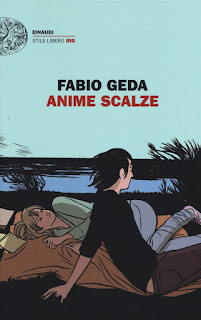PADS - What happens after Avatar?
On the 15th of December, the second chapter of the Avatar saga was released in Italy:
Avatar, The Way Of Water. It’s a good film with very detailed CGI and visual effects, the plot is intriguing and the characters are a bit different from the first Avatar because of Metkayina, the water tribe with visible physical differences such as thicker legs and arms muscles, tail and a different skin pattern and colour.
But we’re not here to talk about the film itself, but about an effect that affects a lot of people after watching both feature films: I’m talking about the PADS, Post Avatar Depression Syndrome. A team of psychologists used a couple of social media asking people: “Are there any other people out there who think humanity is slowly getting in trouble?" and thousands of people replied with the same affirmative answer. But what is PADS? Post Avatar Depression Syndrome is the feeling of sadness, loneliness, frustration and desolation in some viewers. Why do people feel this? The way humans want to destroy Pandora because of its resources (in the first chapter is unobtanium and the second is an enzyme called amrita located in Tulkun brain) reminds us of what humans are doing now to our Earth, an amazing place hurt by mean people who want to make money damaging things and the environmental balance. On forums like Reddit or websites, people describe it as a longing for this clear, harmonious world and the beauty of nature, and someone wrote “I even contemplate suicide thinking that if I do it, I’ll be born again in a world similar to Pandora and everything is the same as in Avatar.” Even if this isn’t a DSM-level diagnosis, Ancient Forest Alliance, a Canadian organization that protects ancient forests, developed a three-step cure for PADS: experience nature outside, take action to defend nature and get others to do the same. These three steps can involve other people to do the same and make the Earth a better place: fans have already begun to reduce consumerism and waste, and are learning how to get in touch with the nature in a more confident way without damaging it.
Avatar, The Way Of Water. It’s a good film with very detailed CGI and visual effects, the plot is intriguing and the characters are a bit different from the first Avatar because of Metkayina, the water tribe with visible physical differences such as thicker legs and arms muscles, tail and a different skin pattern and colour.
But we’re not here to talk about the film itself, but about an effect that affects a lot of people after watching both feature films: I’m talking about the PADS, Post Avatar Depression Syndrome. A team of psychologists used a couple of social media asking people: “Are there any other people out there who think humanity is slowly getting in trouble?" and thousands of people replied with the same affirmative answer. But what is PADS? Post Avatar Depression Syndrome is the feeling of sadness, loneliness, frustration and desolation in some viewers. Why do people feel this? The way humans want to destroy Pandora because of its resources (in the first chapter is unobtanium and the second is an enzyme called amrita located in Tulkun brain) reminds us of what humans are doing now to our Earth, an amazing place hurt by mean people who want to make money damaging things and the environmental balance. On forums like Reddit or websites, people describe it as a longing for this clear, harmonious world and the beauty of nature, and someone wrote “I even contemplate suicide thinking that if I do it, I’ll be born again in a world similar to Pandora and everything is the same as in Avatar.” Even if this isn’t a DSM-level diagnosis, Ancient Forest Alliance, a Canadian organization that protects ancient forests, developed a three-step cure for PADS: experience nature outside, take action to defend nature and get others to do the same. These three steps can involve other people to do the same and make the Earth a better place: fans have already begun to reduce consumerism and waste, and are learning how to get in touch with the nature in a more confident way without damaging it.
Carlotta Nonnis


